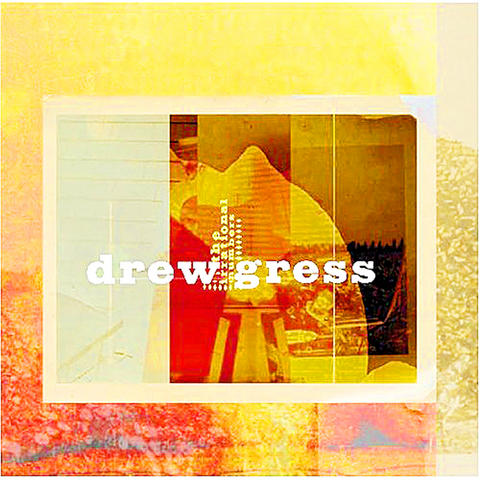| Michael McDonald stretches out just a little on Soul Speak, the latest in a trilogy of jukebox releases that began with Motown and Motown Two. Like its competent and commercially successful predecessors, this new record mainly confirms McDonald’s stature in the related realms of blue-eyed soul and adult contemporary pop. And despite some misguided song selections it’s the strongest of the three. Cover tunes can be a tricky business even for a veteran like McDonald, who stepped out as a solo artist only after memorable work with the Doobie Brothers and Steely Dan. Probably the worst thing for him here would be to evoke the contestants on American Idol. McDonald veers perilously close to that fate with a glib rendition of Bob Marley’s Redemption Song and a redundant take on Stevie Wonder’s Living for the City. But another classic associated with Wonder, For Once in My Life, works nicely, receiving the imprimatur of a harmonica solo by Wonder himself. And McDonald finds equally solid footing with (Your Love Keeps Lifting Me) Higher and Higher, a hit for Jackie Wilson.
|  SOUL SPEAK Michael McDonald March 4
|
| The funniest moment on Chris Cagle’s new album arrives somewhere around the 10-minute mark. He has just finished a brash Southern-rock song called It’s Good to Be Back, complete with screaming electric guitars and defiant lyrics: “I’m stone-cold on a roll/No one gonna tell me no.” In an instant the noise dies down, replaced by tinkling keyboards, the audio equivalent of raised eyebrows. Suddenly this stand-up guy is down on his knees, pleading, “I don’t wanna live without you anymo-o-ore.” Sounds as if someone did tell him no, after all. Cagle is a not-quite-A-list country star with an amusing problem: He doesn’t sing the way he seems. He portrays himself as a hardheaded, fun-loving troublemaker, but his high, quavering, sometimes whiny voice suggests a sensitive soul. His biggest hit is I Breathe In, I Breathe Out, a pretty breakup song that brings its singer to the verge of tears. My Life’s Been a Country Song seems to hint at the twists and turns in his biography. After all, this is a guy who once used his Web site to make a memorable announcement about his girlfriend’s new baby: “We have discovered that biologically, the child is not mine.” Sadly, the title track includes only vague references to “good times and hard luck.” |  MY LIFE’S BEEN A COUNTRY SONG Chris Cagle Feb. 19
|
| The center of gravity shifts constantly throughout The Irrational Numbers, an album of new compositions by the jazz-trained bassist Drew Gress. Some of the pieces deliver a definitive impact, while others coalesce and dissolve. Tempos buckle or shift, but just as often they stick, locking into a groove. Altogether the effort feels like some act of subversive diplomacy. If there’s still any line in the sand between “inside” and “outside” in postmodern progressive jazz, here comes Gress with his rake and trowel. Much of the music on The Irrational Numbers feels conceived for this ensemble; at the very least the album flatters the strengths of each player. Berne has his chance to slash and sprawl, while Alessi bores down on close details. They pair off on a handful of corkscrew themes, including a puckish hard-bop line that appears only toward the end of Blackbird Backtalk, like a truant slipping into class. Gress achieves a dynamic chemistry with his colleagues in the rhythm section, even when he leans into the solo spotlight. He elicits some slippery work on Chevelle and a skittering brand of propulsion on Neopolitan, bonding easily with both. Perhaps it’s natural that Gress would provide this album’s adhesive as well as its anchor, but the results still feel rewardingly like a surprise. |  THE IRRATIONAL NUMBERS Drew Gress Feb. 19
|
| There’s no drummer in Genghis Tron, the three-member metal band originally from Poughkeepsie, New York, and now in Philadelphia. This can be confusing; those sound like drums. Why don’t they just hire a real drummer? But then suddenly some other percussive noise comes in: a highly synthetic clicking or some deeply filtered splat. And then the band goes a step further with electronics, making a keyboard or a synthesizer act almost as a second guitar. Letting go of the old metal-band code of virtuosos playing in real-time helps these musicians: It lets the songs on Board Up the House, the band’s second album, take sudden bizarre turns and allows them moods and textures that cross genres. I Won’t Come Back Alive begins with addled, intricate electronica beats and ruminative singing, then flows right into abrasive, juddering metal by means of a hard electronic edit. Likewise City on a Hill, which can’t decide whether it wants to be poppish new wave or prog rock or screamo. Its music is a record shop in a blender, and the juxtapositions are giddy, energetic and smart. |  BOARD UP THE HOUSE Genghis Tron Feb. 19
|

From the last quarter of 2001, research shows that real housing prices nearly tripled (before a 2012 law to enforce housing price registration, researchers tracked a few large real estate firms to estimate housing price behavior). Incomes have not kept pace, though this has not yet led to defaults. Instead, an increasing chunk of household income goes to mortgage payments. This suggests that even if incomes grow, the mortgage squeeze will still make voters feel like their paychecks won’t stretch to cover expenses. The housing price rises in the last two decades are now driving higher rents. The rental market

July 21 to July 27 If the “Taiwan Independence Association” (TIA) incident had happened four years earlier, it probably wouldn’t have caused much of an uproar. But the arrest of four young suspected independence activists in the early hours of May 9, 1991, sparked outrage, with many denouncing it as a return to the White Terror — a time when anyone could be detained for suspected seditious activity. Not only had martial law been lifted in 1987, just days earlier on May 1, the government had abolished the Temporary Provisions Effective During the Period of National Mobilization for Suppression of the Communist

Fifty-five years ago, a .25-caliber Beretta fired in the revolving door of New York’s Plaza Hotel set Taiwan on an unexpected path to democracy. As Chinese military incursions intensify today, a new documentary, When the Spring Rain Falls (春雨424), revisits that 1970 assassination attempt on then-vice premier Chiang Ching-kuo (蔣經國). Director Sylvia Feng (馮賢賢) raises the question Taiwan faces under existential threat: “How do we safeguard our fragile democracy and precious freedom?” ASSASSINATION After its retreat to Taiwan in 1949, the Chinese Nationalist Party (KMT) regime under Chiang Kai-shek (蔣介石) imposed a ruthless military rule, crushing democratic aspirations and kidnapping dissidents from

Fundamentally, this Saturday’s recall vote on 24 Chinese Nationalist Party (KMT) lawmakers is a democratic battle of wills between hardcore supporters of Taiwan sovereignty and the KMT incumbents’ core supporters. The recall campaigners have a key asset: clarity of purpose. Stripped to the core, their mission is to defend Taiwan’s sovereignty and democracy from the Chinese Communist Party (CCP). They understand a basic truth, the CCP is — in their own words — at war with Taiwan and Western democracies. Their “unrestricted warfare” campaign to undermine and destroy Taiwan from within is explicit, while simultaneously conducting rehearsals almost daily for invasion,